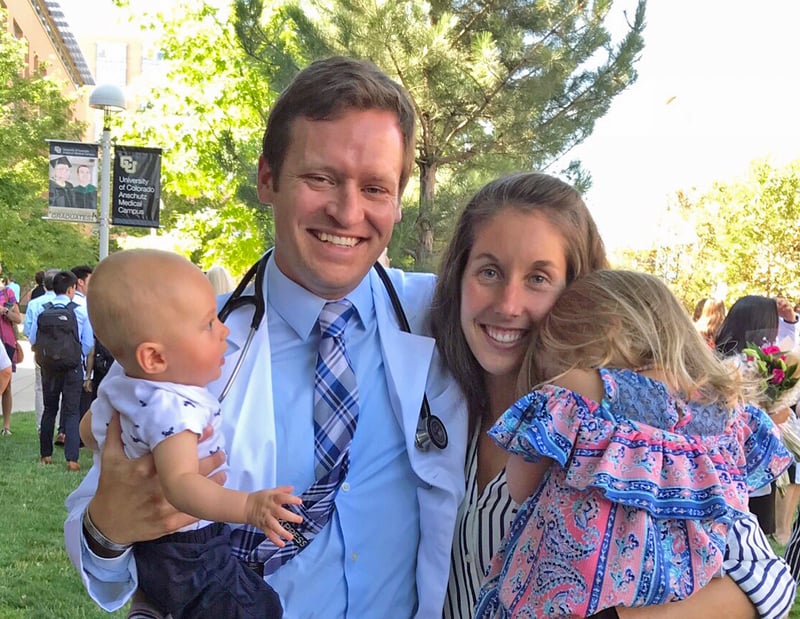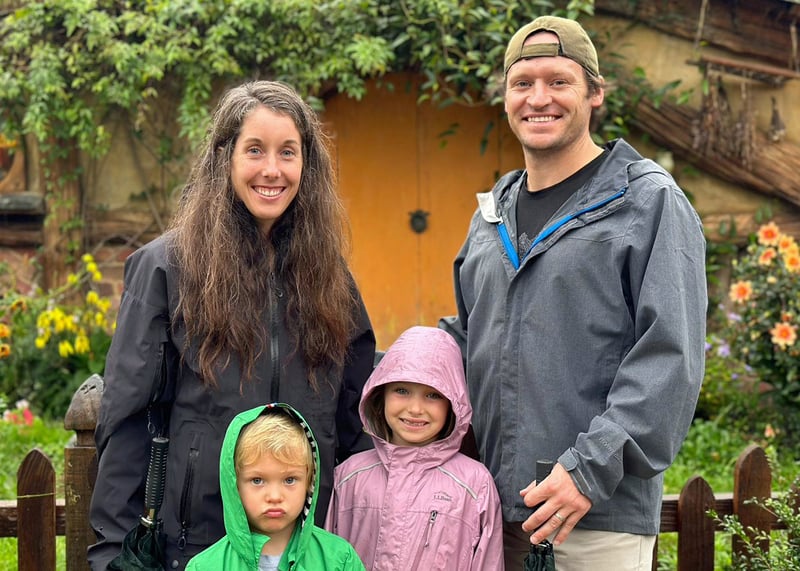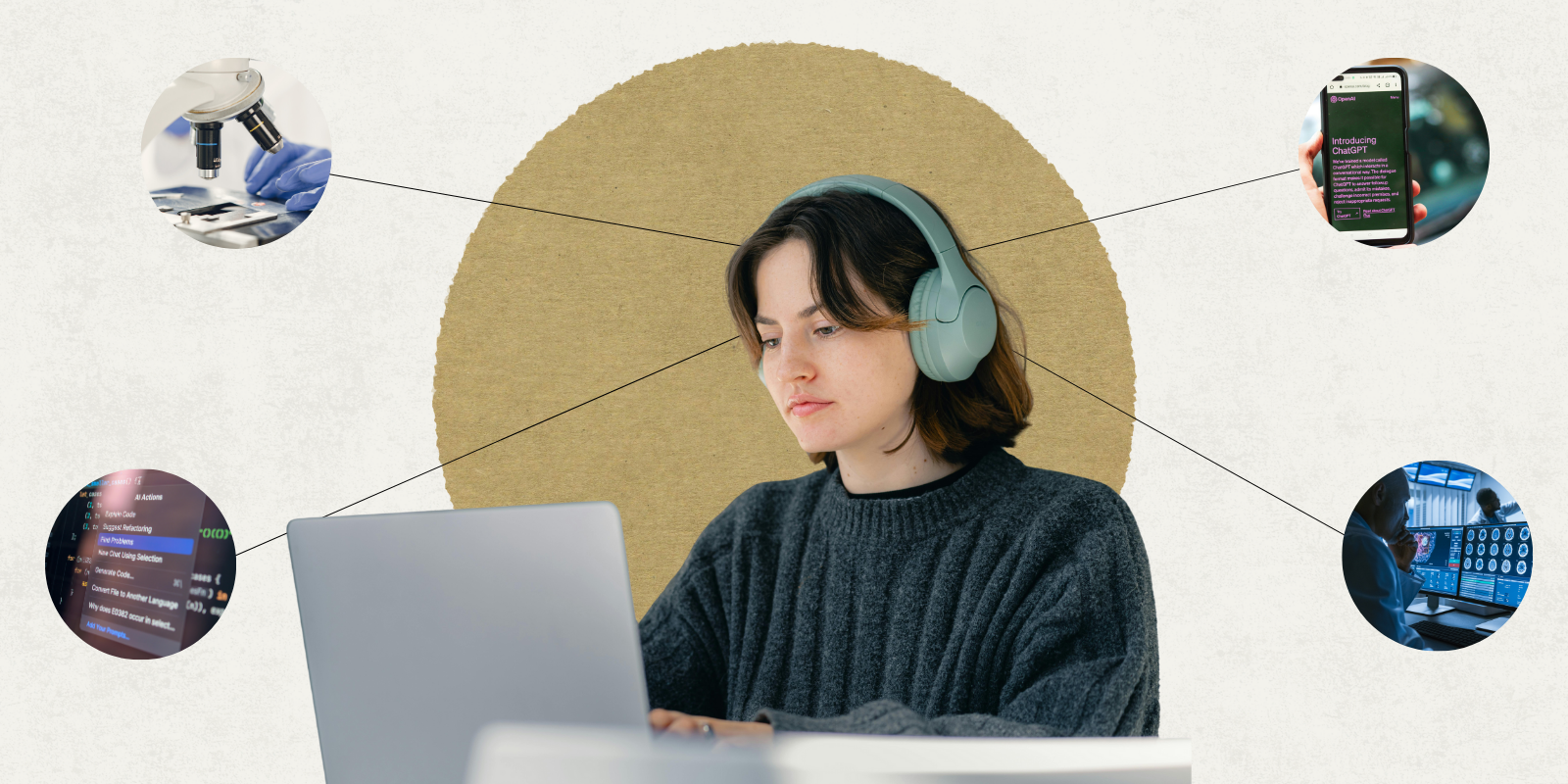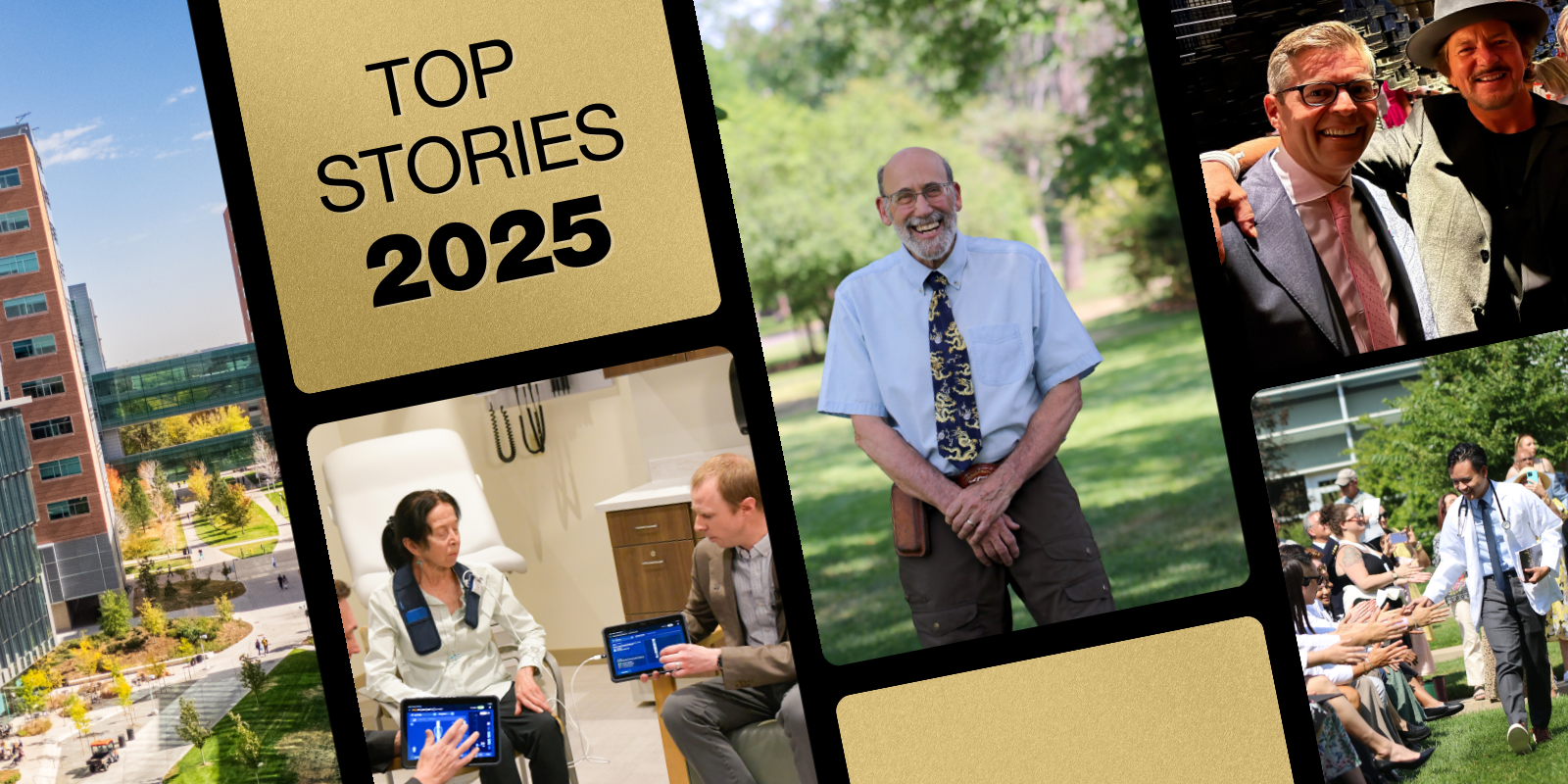Austin Almand’s life experience has been much different from that of many of his University of Colorado School of Medicine classmates: Nine years of active duty in the U.S. Air Force, including special-operations deployments to combat zones across the globe. A master’s degree in aerospace engineering. Working at a remote clinic in India. Helping NASA assess the medical challenges of deep-space travel. Teaching battlefield-trauma skills to Ukrainian forces.
And now he’s almost through with four years of medical school. He awaits Match Day, March 15, when he and his classmates will be matched with their residency program.
There’s a common theme to Almand’s life experiences so far and his aspirations for the future: Service.
Several years ago, he says, “I had done the things I wanted to do in the military and was looking for another opportunity to serve. When I looked back at my military service, and thought about what things I appreciated about that, I realized that I really liked being part of the greater good. An overarching service-mission component was important.”
He adds: “Medicine made sense for me. It’s something that I could engage with intellectually, and something where I could lead small teams, solve tough problems, and get my hands dirty.”

Austin Almand with his wife, Erin, and children at the White Coat Ceremony at the CU Anschutz Medical Campus in 2019. Photo courtesy Austin Almand.
An interesting bridge
Almand grew up near Dallas and went to the U.S. Air Force Academy in Colorado Springs after high school, studying mechanical engineering, boxing on the school team, and meeting a fellow student, Erin, whom he would marry a year after graduation.
Then came the Air Force, with two years of training as a Special Tactics Officer, followed by several overseas deployments. In 2016, Captain Almand was called to the Pentagon to receive the Air Force’s Captain Lance P. Sijan Award for extraordinary leadership. His wife, meanwhile, earned a PhD in microbiology and now serves as an Air Force scientist.
Eventually, Almand decided to shift his focus to human spaceflight, a field that had always inspired him. He transitioned to the Air National Guard, living in Colorado Springs while his wife was teaching at the Air Force Academy, and entered the master’s program in aerospace engineering at CU Boulder.
“My focus was bioastronautics, which is the study of how to solve the problem of keeping people alive, healthy, happy, and productive in space and other extreme environments," he says. "So it was an interesting bridge from engineering to the squishy human engineering of space flight, and then to medicine.”

Left, Austin Almand examines a patient at a clinic serving the Toda/Koti tribal people in India. Center, Almand (foreground) and his unit on duty in Afghanistan. (Uniform insignia are obscured for security reasons.) Right, Almand stands in front of a destroyed Russian tank in Kyiv, Ukraine, in 2023. Right, Photos courtesy Austin Almand.
Seeing a problem through
He enrolled at the CU School of Medicine in 2019 and, as with most students of his cohort, “COVID-19 made things kind of weird. I stayed home a lot and did school from the computer,” he says.
He was named a Tillman Scholar by the Pat Tillman Foundation in 2020, an honor that recognizes outstanding students who are current or former service members.
At first, Almand thought his path would lead him into emergency medicine. But then, he says, “in surgery I found I could have all the things I was looking for, and see a problem through from the beginning to the end. You can see somebody in the emergency department in the trauma bay, help stabilize them there, help solve the problem in the operating room, continue to care for them in the surgical ICU, on the floor, and then continue to see them in the outpatient surgery clinic, potentially for years to come. So surgery made the most sense for me.”
After his third year at CU Anschutz, Erin got a military exchange assignment in southern India, so Almand took time off to be with her and the kids. “It was a wild and crazy experience. I did some military stuff with the Indian special-operations guys, and did some tropical-medicine practicing, I coached PE at my daughter’s school, and helped run a local free tribal clinic.”
Last year, came another trip overseas – a two-month medical training mission to Ukraine a year after the Russian invasion. Then it was back to Colorado to finish med school. He continues to be interested in space and has compiled research for NASA on various risks that might require medical intervention on missions to the Moon and Mars.

Almand with his wife, Erin, and children in New Zealand in 2023. Photo courtesy Austin Almand.
Quality time with family
Whatever down time he has, Almand devotes to his wife and his daughter and son, ages 7 and 5. “You know, medical school will take all the time you give it, so I have to block off quality time to engage with my family. As much as I can, I do whatever my kids are doing, whether it’s gymnastics or swimming lessons or camping.”
On Match Day, Almand hopes to be matched to a general surgery residency in the Washington, D.C., area, given that his wife will be stationed at the Pentagon for the next few years. Then he is pondering a trauma and acute-care fellowship.
He’s interested in searching for ways to bring the technology and capabilities of the best medical-care facilities to places like the ones he has experienced – remote tribal villages and battlefields, for example – that lack such resources.
Almand encourages other past or present service members to consider a path into medicine, noting that there are a number of programs available to assist them, including the Post-9/11 GI Bill, which helps pay for education and job training, and the Health Professions Scholarship Program, which helps cover the costs of an advanced medical degree. At CU Anschutz, the Veteran & Military Student Services office helps past and current service members navigate available benefits and assistance programs.
Update: Austin Almand matched for general surgery at Georgetown University in Washington, D.C.



